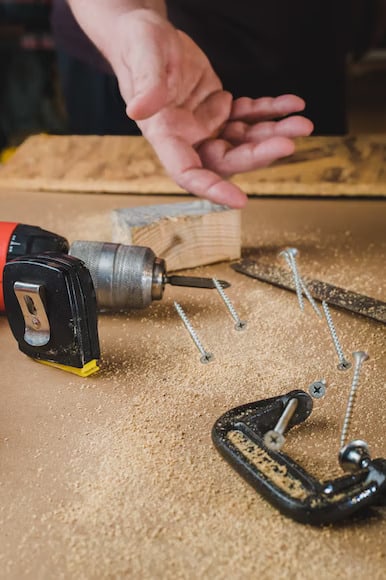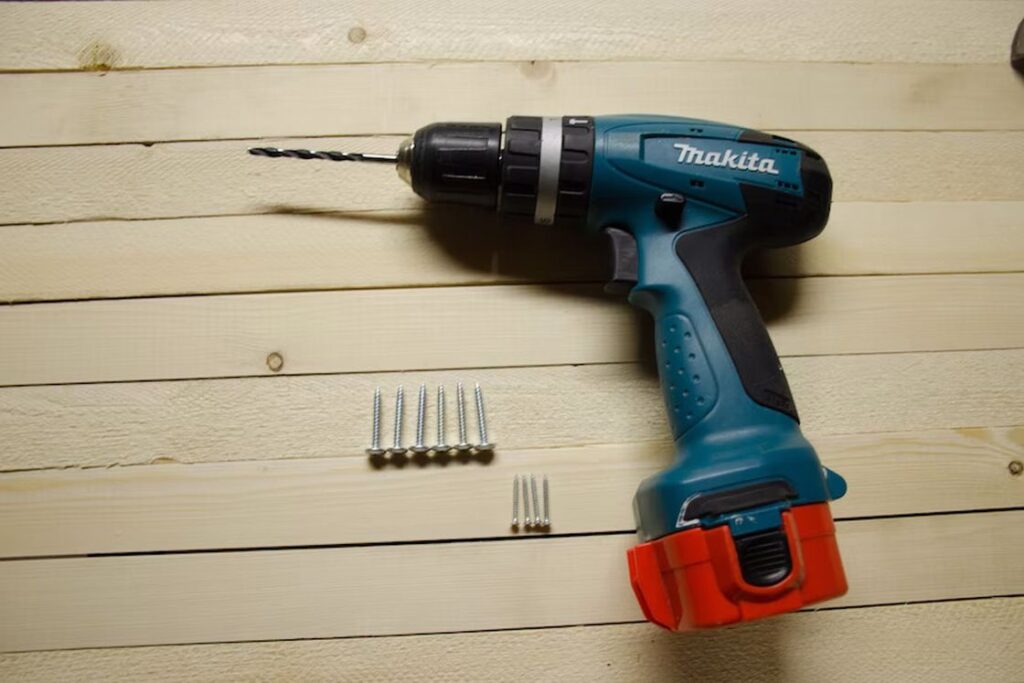#4 screws are part of the standard screw sizes. They are one of the smallest screws around and are commonly used for small projects if you don’t know what size drill bit for a #4 screw, you should know if you’re into very small woodcrafts.
Contents
What Size Drill Bit for a #4 Screw?
A #4 screw needs a size drill bit depending on the pilot hole size on the intended wood and whether it’s hardwood or softwood. For softwood, you would need a size drill bit of 1/16 inches. You would also need a size drill bit of 5/64 inches for hardwood.

Taps like the 4″ NPT tap are similar, so don’t get them mixed up. It’s also a bit larger than the uncommon #2 screw uses a 1/16-inch drill bit, so you will likely use it more often.
Also, note that other types of #4 screws may have different drill bit sizes. These include:
- AB self-tapping screws
- Type B self-tapping screws
- Type 25 thread-cutting screws
Tips for Using Small Drill Bits
Lubricate Drill Bits to Make Them Last Longer
Lubrication decreases the friction between surfaces. This means less heat is generated, making your drill bits less compromised when they’re not that heat resistant. It also keeps your drill bits working longer since it coats drill bits with protection against rust and other stuff.
Some surfaces like aluminum, brass, or cast iron don’t necessarily need lubrication to drill properly. It doesn’t always have to be the case as lubrication also offers other things.
Lubrication boosts your drilling speed since there is less friction. If you’ve drilled with and without lubrication, you probably noticed that drilling without lube is slower, especially if you’re not forcing your way through.
Work Your Way Slowly
If you start drilling aggressively, you might overshoot your target and miss the mark. You’ll have to do over or make do with what you did. This is not a good practice as this could result in markings and damages to your workpiece.
Instead, you should work slowly since you are handling small drill bits. In drilling, it’s not about how fast you are and more about drilling the right spot. Make sure you are drilling correctly as I’ve mentioned about markers before.

Small drill bits are all about accuracy. Most of the time, you have some leeway for mistakes. As you get better and better, you will notice your improvement in accuracy when handling small drill bits.
Drill Bit Material Matters
Generally, most drill bits are made for general purposes. This means drill bits can make a decent job drilling holes in most metals. Some drill bits are better for drilling through wood, metal, and concrete.
Most manufacturer’s usually put the recommended bits to use in their packaging. Therefore, you should have a bit of knowledge of what drill bits to use. Here are some examples of drill bit types and what they can offer:
- Carbon steel can be classified into low and high-carbon steel. Low-carbon steel is the cheapest and is mainly used for drilling softwood and some plastics. High-carbon steel is more robust and can be used for hardwood and soft metals.
- High-speed steel is a popular choice because of its superior quality. It’s mainly used to drill wood and used for CNC drilling.
- Titanium is used for its high corrosion resistance. Titanium is mostly used for repetitive mass production of drilling steel, iron, wood, plastic, and other surfaces.
- Cobalt is mainly used for drilling surfaces that HSS bits can’t. Examples of these are stainless steel and other hard materials.
- A carbide tip is extremely durable. It’s mainly used for drilling fiberglass-reinforced plastic and nonferrous heavy metals.
- Diamond – is one of the toughest materials and is mainly used on the toughest surfaces, such as glass and ceramic.
Conclusion
#4 screws are generally used as fasteners for small woodworking crafts and light-duty hinges. They are available in lengths from ⅜ inches to ¾ inches.
